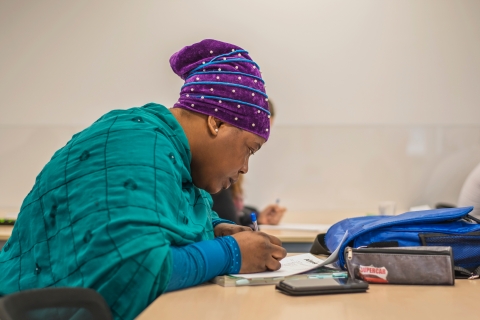The specific needs of women and children striving to overcome discrimination or obstacles to their integration are not always fully taken into consideration in the integration policies of EU Member States. The EESC has put forward ways to address these shortcomings in an exploratory opinion presented at the October plenary session.
The German Presidency of the Council of the European Union asked the EESC to discuss ways to facilitate the integration of women, mothers and families with a migrant background.
This opinion was drawn up by former member Indrė Vareikytė and presented by the rapporteur-general, Ákos Topolánszky, at the plenary session on 29 October.
Mr Topolánszky warned his peers that fewer than half the Member States have enacted policies that explicitly support women and children of migrant descent who face discrimination and barriers to integration. “Isolated, they are too often victims of loneliness and violence,” he said. As regards solutions, Mr Topolánszky stressed the importance of adopting integration policies in a holistic way, encompassing labour inclusion, education, health, justice and housing.
The EESC believes that migrants should be better informed about the objectives of language training and the associated benefits for their daily lives. The Committee also encourages further investigation into whether the Common European Framework of Reference for Languages could be used to streamline the migrant language training process and ensure a more tailor-made approach.
Migrant women face multiple or intersectional forms of discrimination in many areas of social life.
The EESC therefore encourages Member States to ratify the Istanbul Convention and calls for all Member States to ensure that female migrants who are victims of violence have the same access as native-born women to appropriate services, support and facilities.
As the COVID-19 crisis has disproportionately affected vulnerable communities, such as ethnic minority migrant women, the EESC strongly encourages the Commission, when developing its new initiative on integration and inclusion, to take into account the lessons learnt from this crisis across the Union and within the Member States.
In its appendix, the opinion lists a series of inspiring social projects in which migrant women and children are supported in their integration and language training. (ll/tk)
eesc.europa.eu


















